We have a 200-level field methods in ecology class that is required of biology majors in our field ecology concentration. It's meant to expose students to a variety of different field techniques, to give them a general flavor for what's out there (and...frankly...allow them the opportunity to learn if they don't like field ecology before they are a senior and can't switch their concentration!).
I helped out with our summer version of this course a few months ago (see
here).
It's team-taught and each faculty member brings something different to the table, which is great.
I'm coordinating the course this semester.
We started off the course last week with some field survey techniques for insects, taught by our resident entomologist.
First, the students were given a bit of instruction on the tools they'd be trying....
Then it was off to do a bit of collecting....
Some students started by knocking insects from dead tree branches into the apparatus below.....
Others tried their hands at catching flying insects with the hand-held nets.....
After insects were captured with the methods involved, students took some time to experience grabbing them with a special tool called an "aspirator" (see below). Basically, this device allows one to suck up an insect into a sample bottle, without fear of accidentally swallowing it. The aspirator also allows students to catch insects without having to grab things that might sting or bite their fingers!
I joked with the students that I wanted as many pictures of them using these "aspirators" as possible, as there is no way NOT to look dopey while using them :)
But hey...they work! And by the end of the lab, they had caught some stuff. I missed pics of some of the cool spiders they found unfortunately. Too caught up in the moment, I guess).
Soldier Beetles (Family Cantharidae), juvenile Boxelder Bugs (
Boisea trivittata), and a Katydid (Family Tettigoniidae) below....
_______________________________________________________________
Lab 2 last week was focused on a simple introduction to standard Limnological techniques.
Again...we always start off with a bit of instruction...this time from our resident Limnologist/Aquatic Toxicologist....shown here holding a plankton tow net.
Then, it's down to the dock to take the equipment for a test-spin and collected samples to be sifted through back in the lab at a later date.
This included (in addition to the zooplankton net), some hands-on time with the Secchi Disk, which is a standard tool for measuring water clarity.
Students also experienced using an electronic water quality meter refered to as a Quanta Multimeter (made by Hydrolab). It measures dissolved oxygen, pH, water conductivity, temperature, depth and turbidity (or clarity).
Students used Kemmerer sampler (below) to sample phytoplankton which may be too small for the mesh size on the zooplankton tow net (since zooplankton are larger than phytoplankton).
...and then the rain began.....
...and then it REALLY started coming down.....
But I heard not one word of complaint.
And, as an instructor, that always pleases me when things don't go as planned...
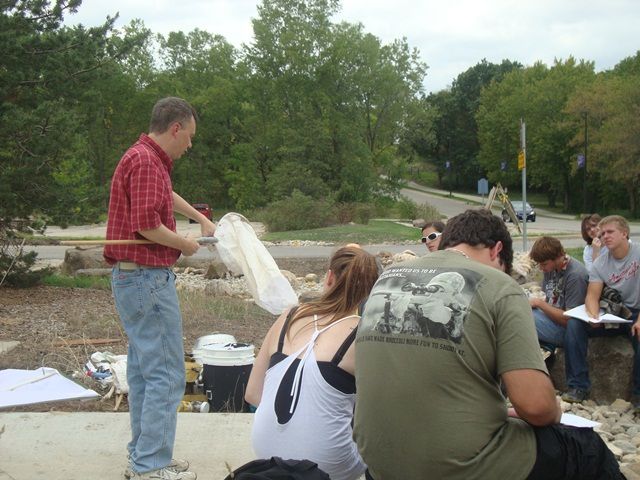
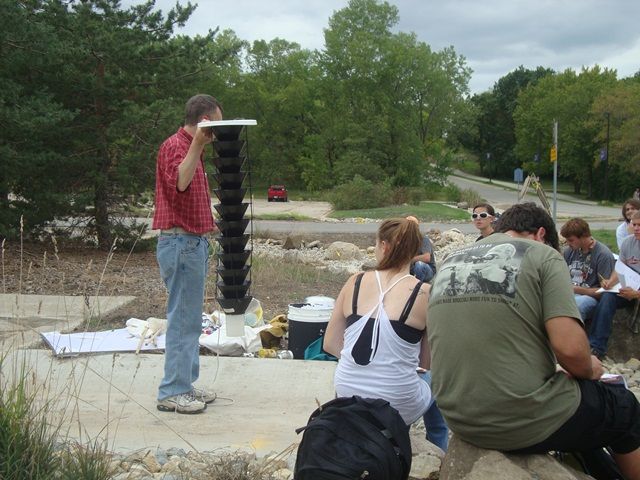


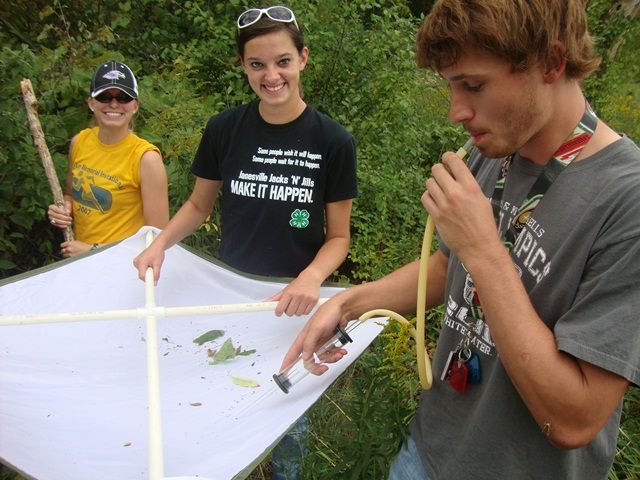


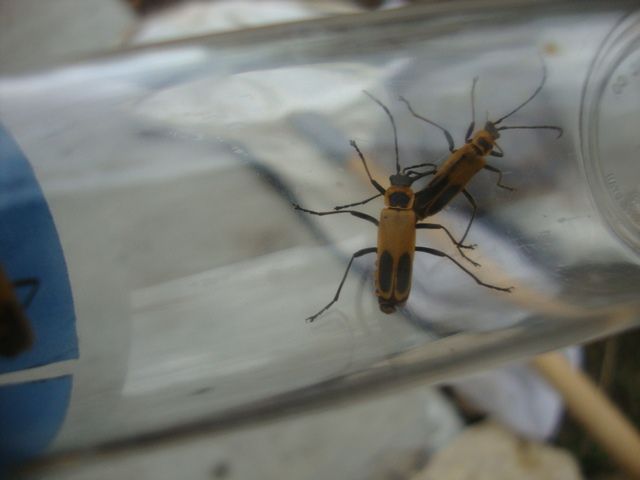
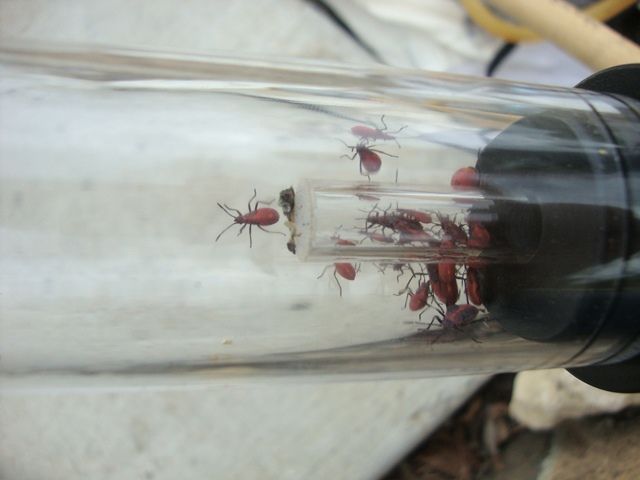
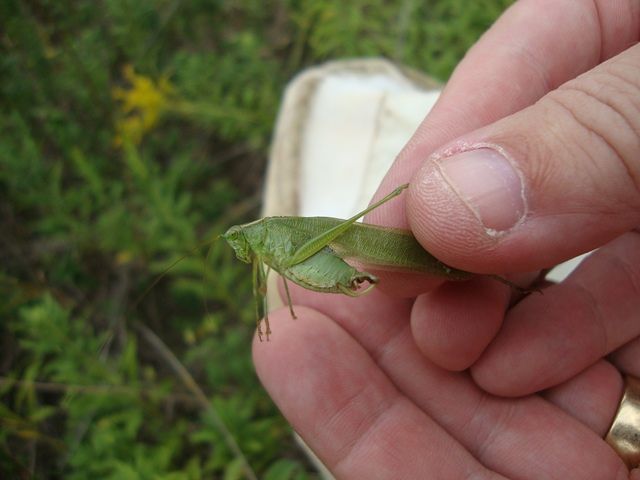


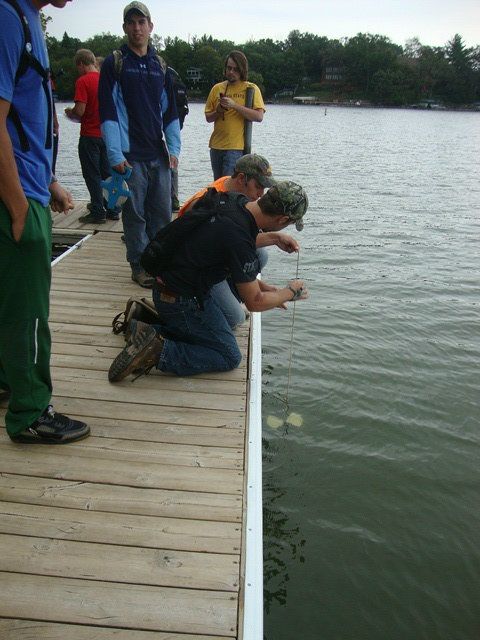
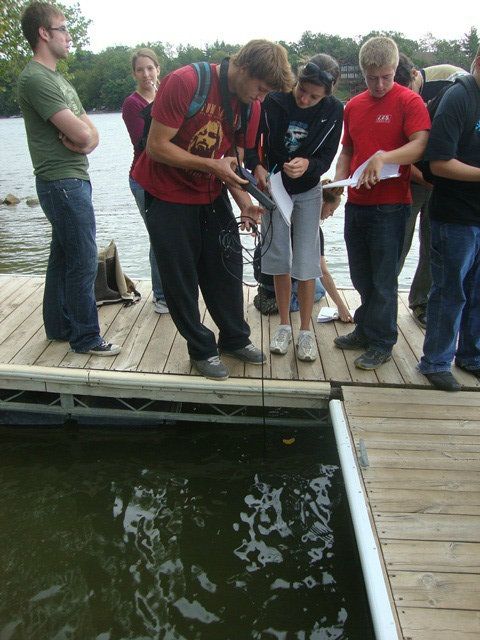
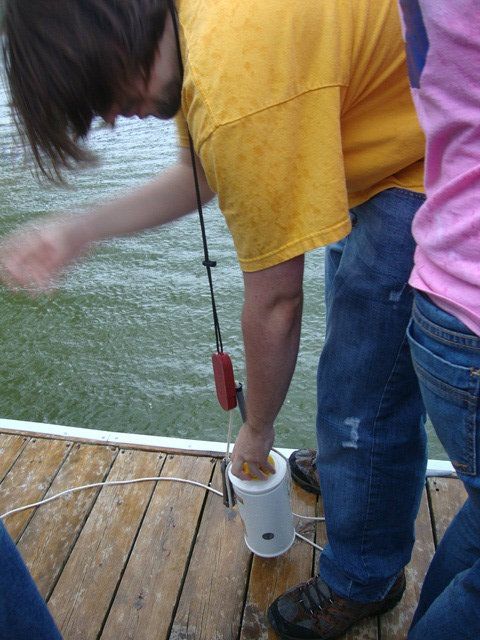

Sounds like an awesome class...the school I just left did a lot of team teaching, and it keeps things lively. Field classes are also always the best, even in the rain!
ReplyDeleteHi Alyssa...
ReplyDeleteYeah, team-taught classes have their benefits (for one, I don't have to design an entire semester worth of field exercises and can rely on the expertise in certain areas of my colleagues).
They can have draw-backs when it comes to exam time....as not everyone writes exam questions that are of the same style, etc., which can make exams in this class a bit tricky for the students.
Hope your new school is still treating you well! The first few months are the hardest for adjusting.
That would be my complaint as well, there wasn't much fluidity between sections of the tests between professors. Do you ever, or a colleague, ever test but allow use of field guides? I've always wanted to be allowed to use my guides, because we're instructed how to use them, and I take time to learn. Field guides will be available in the real world, and cramming things into memory don't do me much good. Just wondering!
Delete